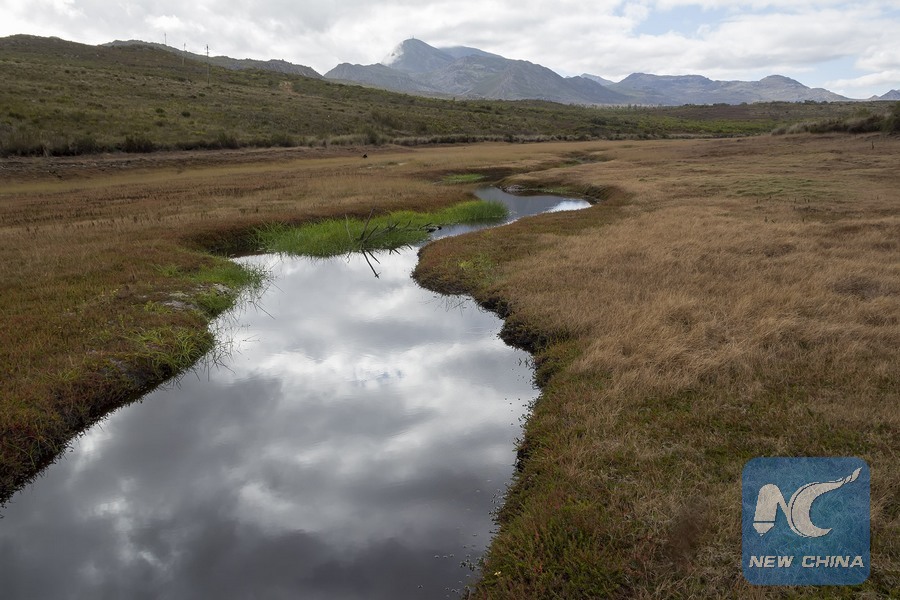
Photo taken on May 28, 2017 shows a dry land in Cape Town, South Africa. The city was then facing a water crisis that has not been seen in a century. (Xinhua/Andre Louw)
CAPE TOWN, Sept. 4 (Xinhua) -- South Africa's Cape Town has managed to steer itself away from disaster known as Day Zero, when the city runs out of water, executive deputy mayor Alderman Ian Neilson said on Monday.
Giving the latest update on rainfall the city has received in the past few days, Neilson said the city is very encouraged to see dam levels rising above 65 percent after significant late-winter rainfall, the first time in years.
"It is hoped that this latest rain could provide sufficient motivation for finally easing the water restrictions," he said.
Cape Town, South Africa's second largest city and legislative capital with about 4 million people, was on the brink of becoming the world's first metropolis to run out of water last year, in what was called Day Zero which refers to the time when dams supplying water to the city run dry, water taps are switched off and residents have to collect water at designated points.
An unprecedented drought prompted the city to impose Level 6B water restrictions, the most stringent in history, on January 1 last year. Under the restrictions, a resident can only use 50 liters of water each day.
The water restrictions still remain despite the continuous rise of water in dam levels, Neilson said.
The rainfall over the past few weeks, combined with continued saving efforts by the majority of residents, has seen dams fill to levels the city had not seen in years, he said.
The city has advocated for a conservative relaxation of the restriction levels, which would pave the way for the associated relaxation of the restriction tariff, according to Neilson.
This decision is currently being considered by the department, he said, while cautioning that any relaxation of restrictions will at first be conservative.
"We cannot return to a business-as-usual attitude to water without risking water security in the years to come," he said.
"Given the unpredictable nature of our rainfall, it is imperative that we diversify our supply for the future, and entrench the water-saving mindset we have cultivated over the past year," said Neilson.

